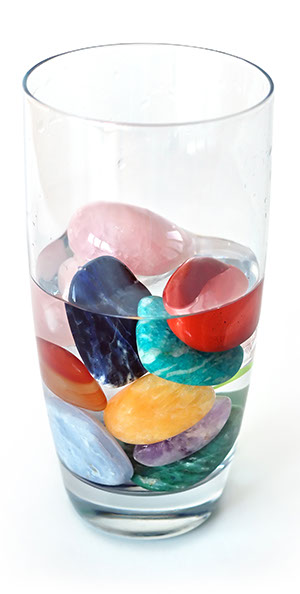SciGen Teacher Dashboard
Unit M2
Determining Density
Archimedes & the Case of the Missing Gold
The Basics of Density
Heating Up and Spreading Out
Is Putty or Clay More Dense?
 Density helps us compare different substances—not just different objects, but the substances of which objects are made. To compare the density of two materials, we consider pieces of each material with the same volume, and compare their masses. To do this without actually chopping pieces out of objects, we divide the mass of each object by its volume.
Density helps us compare different substances—not just different objects, but the substances of which objects are made. To compare the density of two materials, we consider pieces of each material with the same volume, and compare their masses. To do this without actually chopping pieces out of objects, we divide the mass of each object by its volume.
But science teachers are eager for their students to gain more insights into the property of density, so we have set up several activities that focus on density on the conceptual level.
Activities
 Reading: Archimedes & the Case of the Missing Gold
Reading: Archimedes & the Case of the Missing Gold
This unit begins with an expertly-illustrated retelling of the classic story of Archimedes' “EUREKA!” moment. He is credited by some for coming up with the idea of determining the volume of an irregularly shaped object by dipping it into water... just as he was dipping himself into the bathtub!
Duration: Approximately 50 minutes
 Conversation: The Basics of Density
Conversation: The Basics of Density
Students explore a series of slides containing questions that compare a piece of gold with a piece of wood.
Duration: Approximately 40 minutes
 Interactive: Heating Up and Spreading Out
Interactive: Heating Up and Spreading Out
Objects' densities can change depending on their conditions. In this activity, students students interact with a simulation of iron atoms heating up.
Duration: Approximately 50 minutes
 Lab: Is Putty or Clay More Dense?
Lab: Is Putty or Clay More Dense?
In this fun and informal lab, students come up with ways to determine the density of irregularly shaped pieces of clay and putty. Students can then go on to determine whether or not samples are pure (without cutting them open) just as Archimedes did.
Duration: Approximately 70 minutes
Teacher Tune-ups
- How does the density of an object relate to the mass of an object?
- How is liquid displacement used in density measurement?
Student View of Visuals and Activities
Some teachers prefer to have students view the slides and other visual assets in this unit directly instead of projecting them in class. Below is a web page to share with students with links to some of same items that are within in the teacher lesson plans, but without the explanatory text for the teacher.
Original SciGen Unit
This unit has been adapted from pieces of the three units of the "Introductory Chemistry Concepts" group and "7.2 Does the metric system measure up?" in the Word Generation program led by Catherine Snow (Harvard University) through a SERP collaboration with the Boston Public Schools and other districts in Massachusetts and Maryland.
PDFs of that earlier unit's teacher and student editions are available at the Science Generation Download Center.
Unit M2 Focus Words
density
noun – the ratio of mass to volume
How do differences in density help balloons float in the air?
volume
noun – the amount of space taken up by an object
Is it easier to determine the volume of a brick or a stone?
mass
noun – a measure of the quantity of matter in an object
Imagine you take a trip to the moon on a new spaceship. Would your mass change when you leave Earth?
fluid
noun – a substance that is in a liquid or gaseous phase
Compare and contrast the characteristics of liquid and gaseous fluids.
irregular
adjective—not following a common or expected pattern
From far away the spire looked like a simple cone, but when we got closer we saw that it was quite irregular, covered with random bumps and grooves.
displacement
noun – the space taken up by an object submerged in a fluid
How did Archimedes use displacement to compare a gold bar to the king's new crown?
expand
verb — to spread out, to enlarge
My kickball was a little flat when we were playing outside in the freezing winter air, but as soon as we bring it into the overheated library it should expand to its normal size.
reference point
noun – a starting value for measurement, or basis of comparison
Sailors, nomads, and people on the move in many cultures throughout history have often used the North Star as a reference point in celestial navigation.
Eureka!
interjection—an exclamation expressing the excitement of a discovery or breakthrough, from the Ancient Greek word εὕρηκα “heúrēka” meaning "I found (it)"
After toiling away in my workshop for months, I was so glad when I finally got my invention to work that I cried out, “Eureka!”
BETA Version - Please send comments and corrections to info@serpinstitute.org